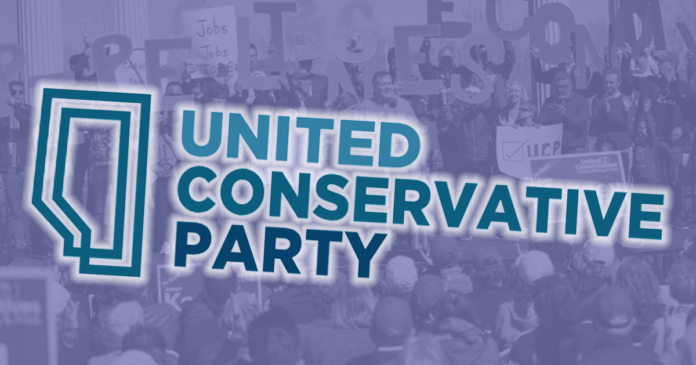Nine United Conservative Party (UCP) leadership candidates are vying to become the next Premier and inherit a $3.9 billion surplus — and the upcoming surplus is projected to be the largest in Alberta’s history.
However, it’s expected that less than 2% of Alberta’s population will participate in that process. In the 2017 UCP leadership race which elected Premier Jason Kenney, less than 60,000 votes were cast.
Multiple campaign organizers told True North they expect less than 100,000 votes to be cast in the ongoing UCP leadership race. There are 4.4 million Albertans, around 59,000 of whom were members of the UCP at the start of the leadership contest. This number will spike before the election, as membership sales are integral to leadership campaigns.
There were 34,298 votes cast in Kenney’s leadership review, which he narrowly passed with 51.4% of voter support. He chose to resign anyway.
This means just 16,669 votes turfed the man largely responsible for uniting Alberta’s Progressive Conservatives and the Wildrose Party under the UCP banner — and defeating Rachel Notley’s NDP government just three years ago.
The UCP leadership contest is an opportunity for voters to have a rare level of influence, said Vitor Marciano, campaign manager for UCP leadership candidate Brian Jean.
“Maybe once a decade you can have this level of influence on who is governing the province,” Marciano told True North. “That’s why it’s so important.”
Who’s eligible to vote
You must become a member of the UCP before August 12 to vote in the leadership race.
To be a member, you must be a permanent resident of Alberta who is older than 14 years of age. The membership costs $10 for one year, $20 for two years or $30 for three years.
A membership holds the added benefit of enabling members to vote in local nominations, attend party AGMs and attend the provincial party’s AGM where the provincial board of directors is elected.
How the process works
After you purchase a membership, there are two processes in which to vote in the leadership contest. The first option is through a mail-in ballot process, the same used for Kenney’s leadership review which ultimately led to his impending resignation.
After the membership cutoff on August 12, mail-in ballots will be sent out. Members must return their ballots by October 3, meaning they must consider ballot transit time.
Mail-in ballots are carefully verified. The submissions are checked against the party’s membership list and voters must include a photographed copy of their ID.
The second option is an in-person vote. On October 6, there will be five polling locations across the province’s five regions; Edmonton, northern Alberta, southern Alberta, central Alberta and Calgary.
The leadership contest results will be announced on October 6.
How your ballot works
The leader will be determined through a ranked voting system.
In a ranked voting system, the winner must receive over 50% plus one of the votes. If there are more than two candidates on the ballot, it’s possible no one will receive over 50%. In such a scenario, the contestant with the least number of votes is eliminated. The losing candidate’s votes are then redistributed among the remaining candidates, based on which contestants were ranked next.
This process continues until a candidate meets the threshold of garnering at least 50% of first choice rankings of the remaining candidates.
For example, this is how Erin O’Toole beat Peter MacKay on the third ballot in the 2020 federal Conservative leadership race. In that contest, O’Toole received more second and third ballot support for candidates who placed Derek Sloan or Leslyn Lewis as their first choices. After Sloan, and then Lewis fell off, those voters placed O’Toole above MacKay on their ballots.
The Candidates
Nine candidates have put their names forward to be considered for the next UCP leader and Alberta premiership.
Eight candidates have experience as elected officials, ranging from local to federal politics. Six are sitting MLAs, including five UCP MLAs. Two are former Wildrose Party leaders and one is running even though he’s been disqualified by the party. Jon Horsman, a Calgary businessman, entered the race just last week.
Find out more about the candidates here.





















